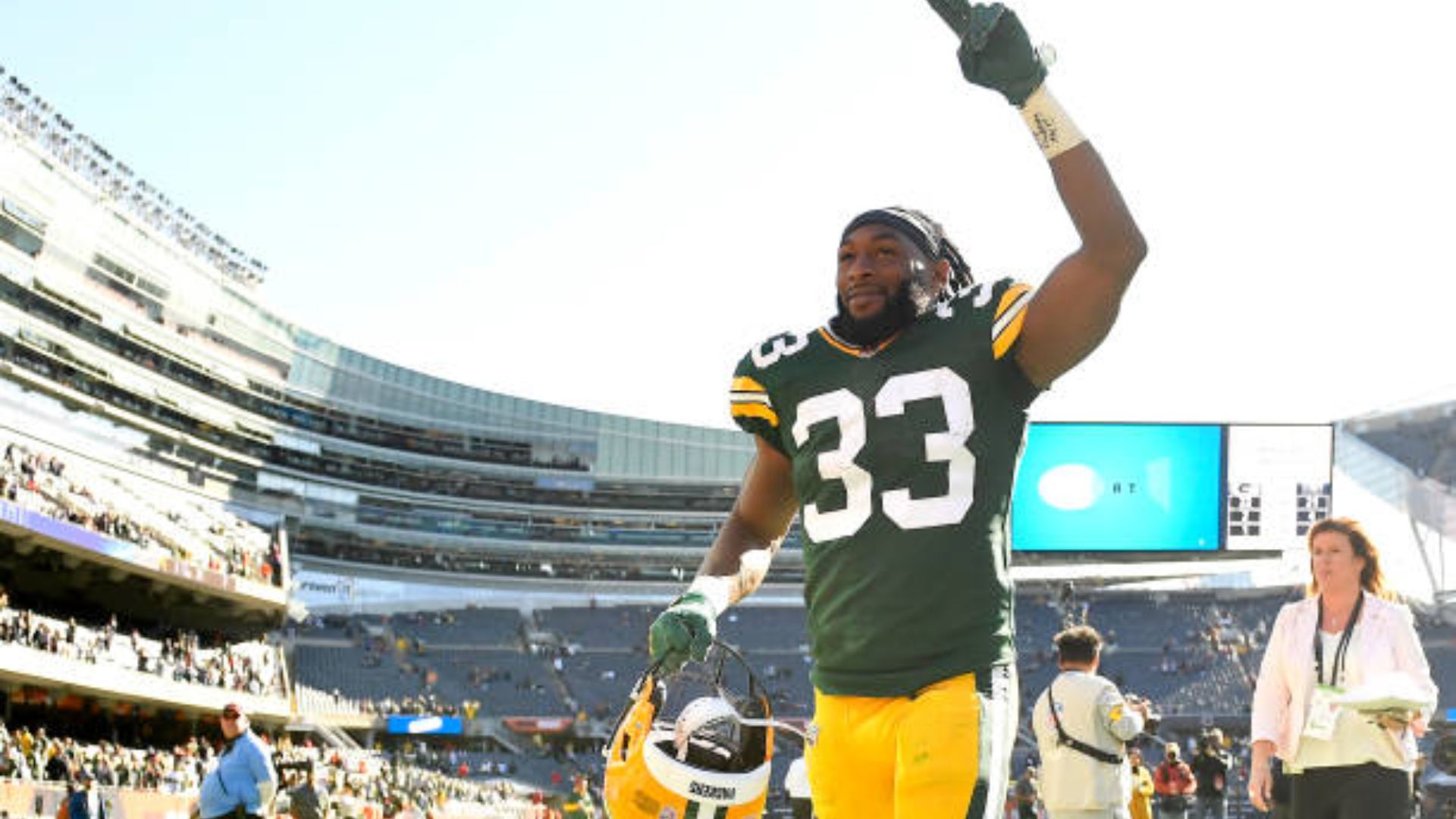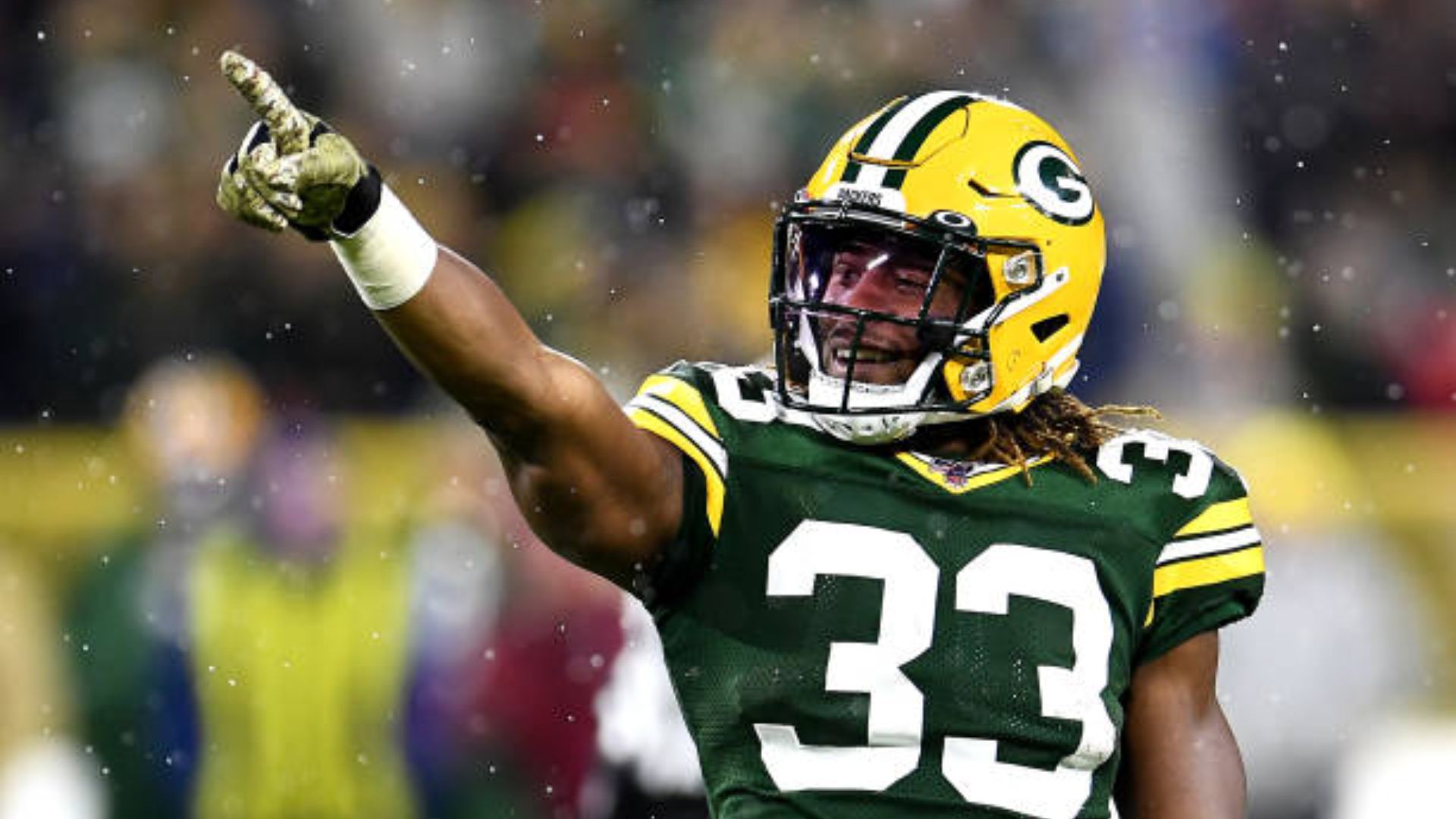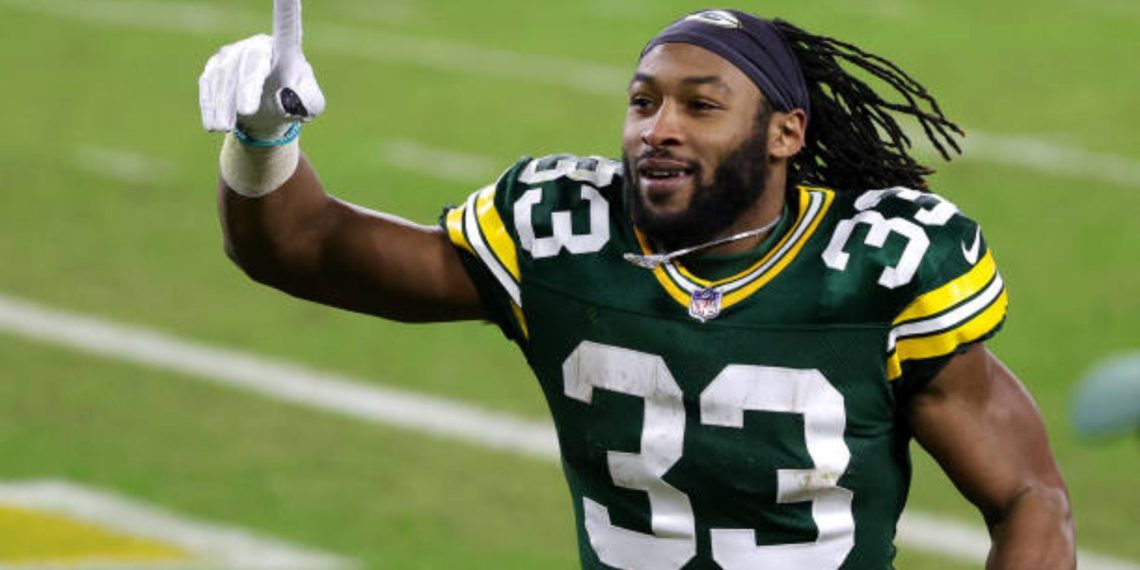The Minnesota Vikings have made significant changes to their running back position in recent offseasons, parting ways with Dalvin Cook last year and Alexander Mattison this year. Their latest move involves signing veteran running back Aaron Jones to a one-year, $7 million deal.
Despite the consecutive changes at the position, Vikings general manager Kwesi Adofo-Mensah sees value in the veteran running back market. He believes that the perceived devaluation of running backs by the league may have swung too far, leading to inefficiencies in the market.
Adofo-Mensah expressed confidence in Jones’s ability to contribute and believes that running back remains a position where teams can efficiently upgrade performance.

The signing of Jones represents the Vikings’ continued commitment to finding impactful players at reasonable value. Despite the recent turnover at the position, they are optimistic about Jones’s potential to make a positive impact on the team.
Jones’ performance in the 2023 season showcased his enduring quality and distinguished him from Cook and Mattison at the time of their departure from the Vikings.
In his final season with the Packers, Jones maintained a remarkably high level of play. He achieved the feat of rushing for over 100 yards in a record-breaking five consecutive games, a streak that extended into the postseason. Furthermore, Jones consistently demonstrated his efficiency by averaging over 4.6 yards per carry and 5.2 yards per touch for the seventh consecutive season.
This level of consistency and productivity sets him apart from Mattison, who struggled to surpass 4.0 yards per carry over the past three seasons and experienced a decline in performance last season. Moreover, Jones’ success rate on runs in the 2023 season, calculated at 62% by Pro-Football-Reference, significantly surpassed Cook’s mark in his final season with the Vikings, which stood at 47%.

This statistical comparison underscores Jones’ continued effectiveness and highlights why the Vikings were willing to invest in him despite the prevailing trend of minimizing expenditures on the running back position across the league.
Ultimately, the Vikings’ decision to sign Jones was a testament to his enduring quality and potential contributions, distinguishing him from their previous backs and justifying their investment in his talent.




